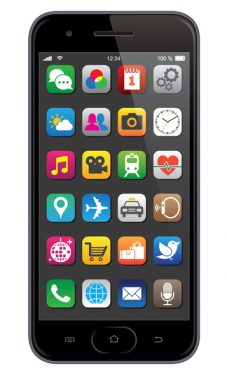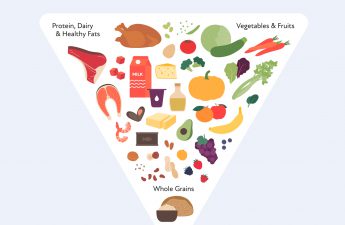
When it comes to staying on track with healthy goals, some people prefer having a cheerleader in their corner offering encouragement and positive vibes, while others prefer more of a tough-love approach. Perhaps the latter was the idea behind a new weight-loss app that shames you into losing weight by offering snarky comments and ridicule. After learning about this app on the news the other morning, I turned to Registered Dietitian and nutrition expert for TOPS, Dena McDowell, to have her share her thoughts on this “demotivating” approach to weight loss. Here’s what she had to say:
Q: What are your thoughts on this type of app?
A: I would not recommend this app to my patients. I think that carrying extra weight can also carry shame. When someone is working hard to make positive changes to improve his or her health, an app like this can negate their efforts to lead a healthier lifestyle. I especially dislike the idea that you can pay the app to count junk food, but not the calories. This defeats the purpose of trying choosing healthier foods. If you eat foods that you should not be eating, then you should be accountable for these calories. Also, the idea of public shame through social media for recording junk food seems harsh and I believe can trigger negative feelings which, in many, can lead to harmful behaviors such as overeating. Extra caution should be used when using this app, especially when working with young adults who may be more susceptible to distortions of healthy eating and healthy weight.
Q: Do you have any advice for more positive ways to stay motivated while watching your diet?
A: Maintaining a healthy diet is easier said than done. We live in a world that is filled with large-portioned convenience and processed foods. When a person decides to make the choice to eat healthier and get more regular exercise, it should be a choice of changing behaviors for a lifetime. Taking it one step at a time and prioritizing what habits to change is an effective tool in behavior modification. For example, if you always skip breakfast, aiming to make a healthy breakfast a few times a week can be a strategy to change the habit. To be successful in behavior modification, most people need to practice the change for at least 21 days. So, if you’re trying to get in the routine of a healthier lifestyle and you miss the mark for a few days, try to regroup and start the 21 count again to re-engage yourself in the behavior modification. Change is hard, but the more consistent you are, the more successful you will be. Lastly, let people know what you are trying to accomplish. Unlike the previously mentioned app, that may provide only negative feedback, telling friends, family and co-workers about your goals will hold you more accountable and provide the extra support you need to be successful.
Something else to check out: TOPS has joined forces with the OAC (Obesity Action Coalition) to help end fat shaming by supporting the OAC petition drive to remove fat-shaming apps from online stores. Fat-shaming apps are turning obesity and excess weight into a funny, cosmetic issue, which we know it is not. You can sign the petition at http://www.obesityaction.org/weight-bias-and-stigma/bias-busters/fat-shaming-apps


